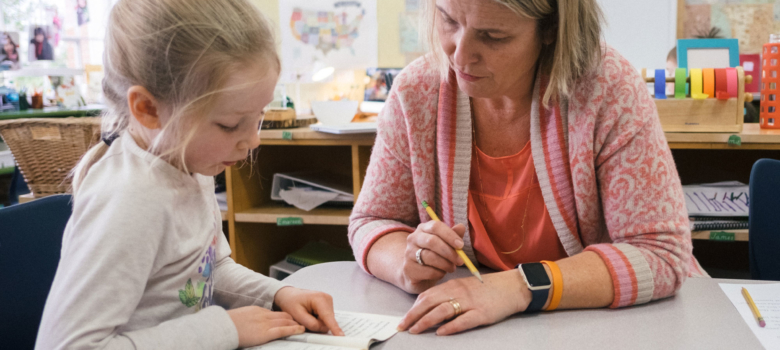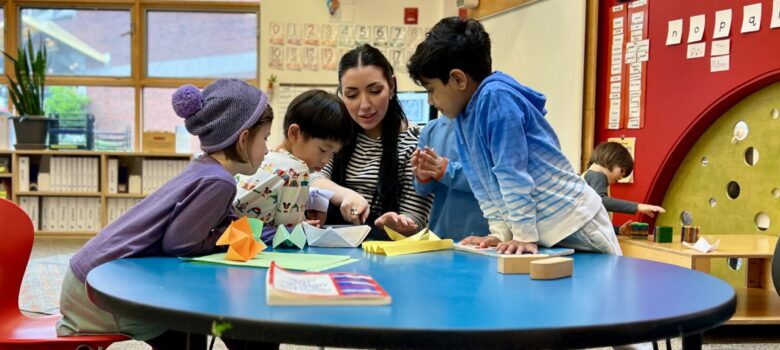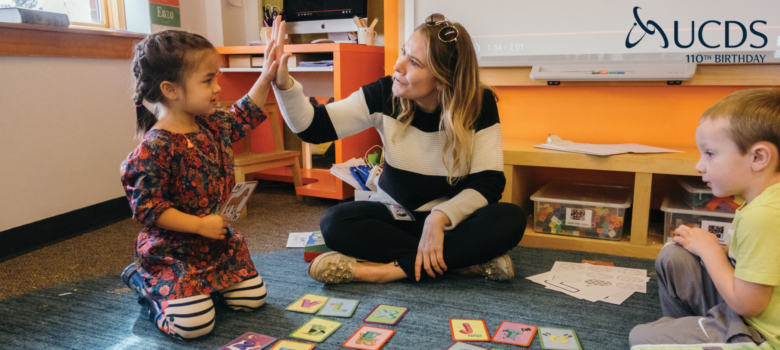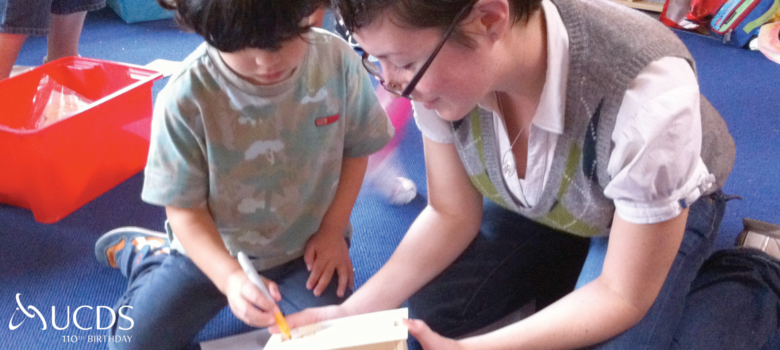By David Garrick, Graduate School Dean
As an independent school, UCDS designs an experience that is unique to our philosophy and mission. This accounts for a number of differences between a UCDS education and the type of experience that is typically imagined when we think of school. For the sake of this article, we will focus on one particular difference, the UCDS continua and narratives and why this approach provides a more comprehensive picture than letter grades.
Letter grades don’t provide any kind of picture of what skills a student demonstrates. They do not account for learning styles, nor do they account for areas where a student’s skills reach beyond the traditional A-level. By providing specific information about the academic and social skills demonstrated by each student, UCDS provides detailed and actionable information about student progress. Competency-based continua provide clarity and transparency about student progress. They allow teachers and families to communicate about specific skills and learning dispositions and to see what the next steps will be.
By reporting about student progress in this way, UCDS provides a deeper view into each student’s learning attitudes and strategies and provides resources that better support individual needs. This type of information is key to understanding the unique modes, strategies, and coaching to which each student responds best. This is the foundation of personalized learning.
How can other schools shift to competency-based communication?
To successfully adopt competency-based strategies, teachers and administrators must first reevaluate assessment. While traditional forms of assessment (i.e., exams and quizzes) are valuable when placing students on a general scale of progress, they don’t show the whole picture. Making changes to assessment can be daunting for some educators, especially those who have been using traditional assessment practices throughout their career. It can also be a shift for parents to evaluate their student’s performance without a grade.
It’s important for schools to pursue resources and professional development that introduce different methods of assessing student progress. They must adopt the professional mindset that learning never stops – and by revising their approach to reflect new understanding, curriculum can also be adapted to meet every students’ needs.
Students develop a better understanding as well.
By using comprehensive, competency-based assessment methods, teachers are also able to provide students with greater self-knowledge about their learning approaches and needs. Working from a continuum of skills as opposed to a calendar of curriculum ensures that every student is being challenged in a way that is appropriate to what they want and need to learn and that educators can give individualized support as needed to help them move forward.
Removing the distraction of being placed on a tiered grading scale shifts the students focus back to learning. Students take ownership of their learning. They feel empowered when mastering a skill and learn to identify what’s next.
Conclusion.
For teachers, competency-based assessment and reporting brings depth and value to curriculum. With the focus shifted toward skill-building, students become more involved in long-term progress. They are more apt to become engaged and take risks while learning.
Ranking students based on undefined competencies and then using that rank to determine their future prospects is not only a blunt instrument, it is not even effective. Competency-based assessment provides more detailed information that promotes better-targeted teaching and learning for all parties involved.





